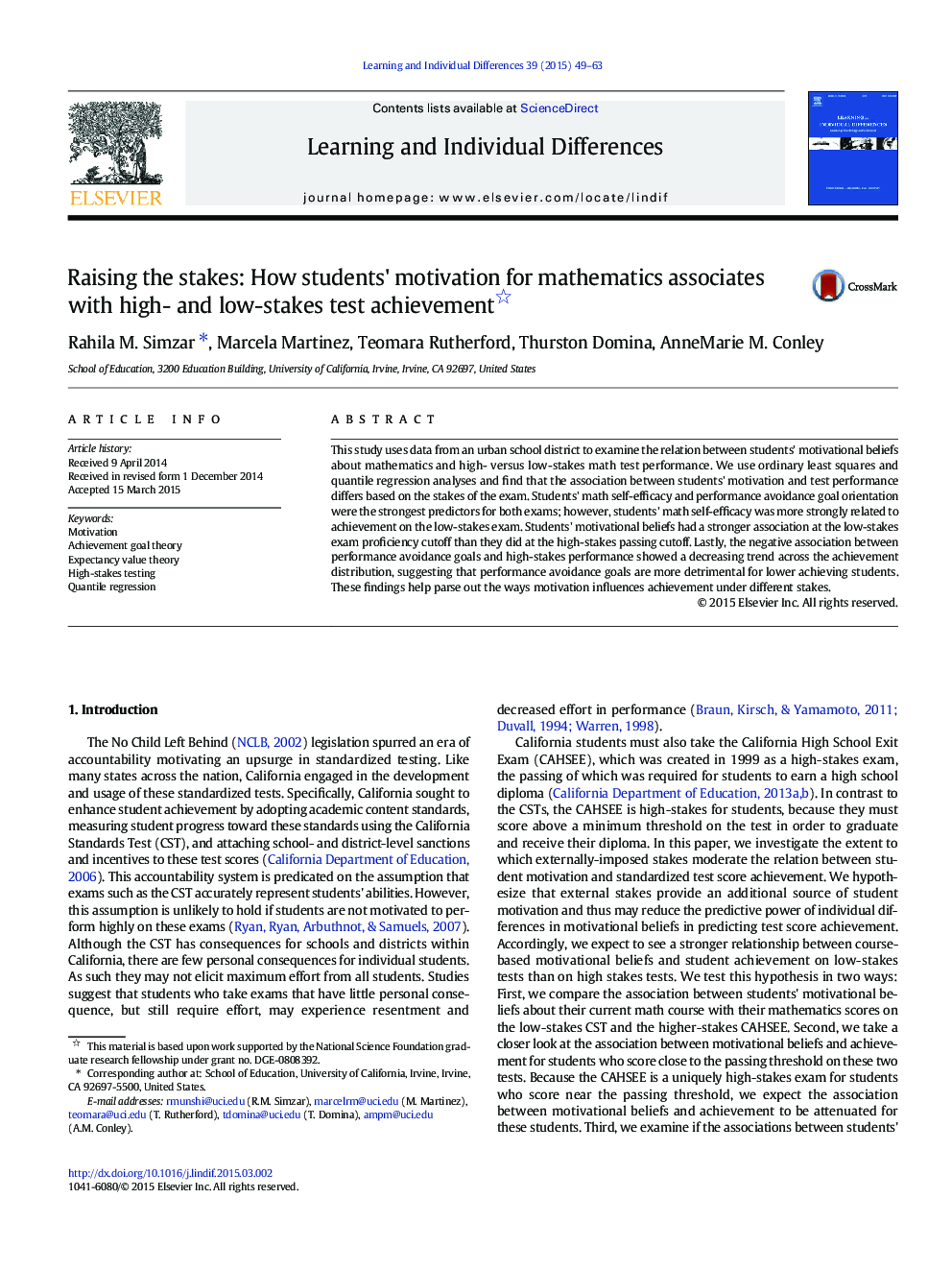| کد مقاله | کد نشریه | سال انتشار | مقاله انگلیسی | نسخه تمام متن |
|---|---|---|---|---|
| 364540 | 621074 | 2015 | 15 صفحه PDF | دانلود رایگان |
• We examine students' motivation and high- versus low-stakes test performance.
• Self-efficacy was more strongly related to achievement on the low-stakes exam.
• Students' motivational beliefs had a stronger association at the low-stakes cutoff.
• Performance avoidance goals are more detrimental for lower achieving students.
• Findings parse out how motivation influences achievement under different stakes.
This study uses data from an urban school district to examine the relation between students' motivational beliefs about mathematics and high- versus low-stakes math test performance. We use ordinary least squares and quantile regression analyses and find that the association between students' motivation and test performance differs based on the stakes of the exam. Students' math self-efficacy and performance avoidance goal orientation were the strongest predictors for both exams; however, students' math self-efficacy was more strongly related to achievement on the low-stakes exam. Students' motivational beliefs had a stronger association at the low-stakes exam proficiency cutoff than they did at the high-stakes passing cutoff. Lastly, the negative association between performance avoidance goals and high-stakes performance showed a decreasing trend across the achievement distribution, suggesting that performance avoidance goals are more detrimental for lower achieving students. These findings help parse out the ways motivation influences achievement under different stakes.
Journal: Learning and Individual Differences - Volume 39, April 2015, Pages 49–63
